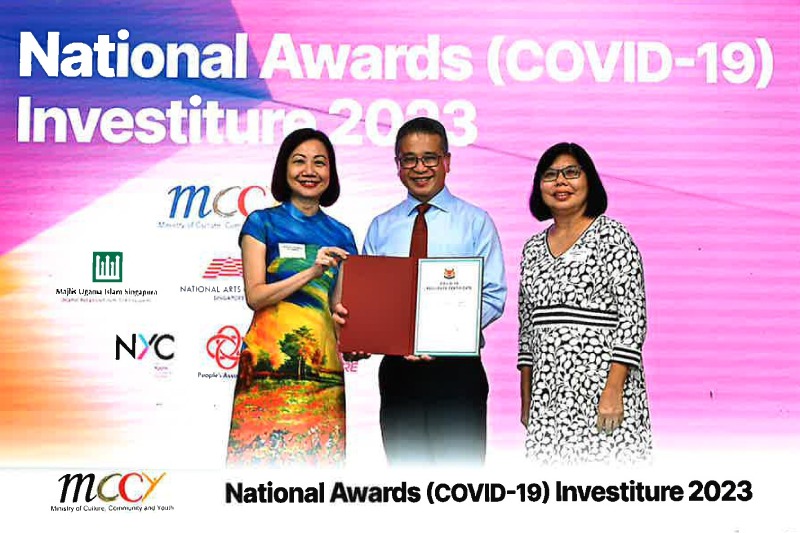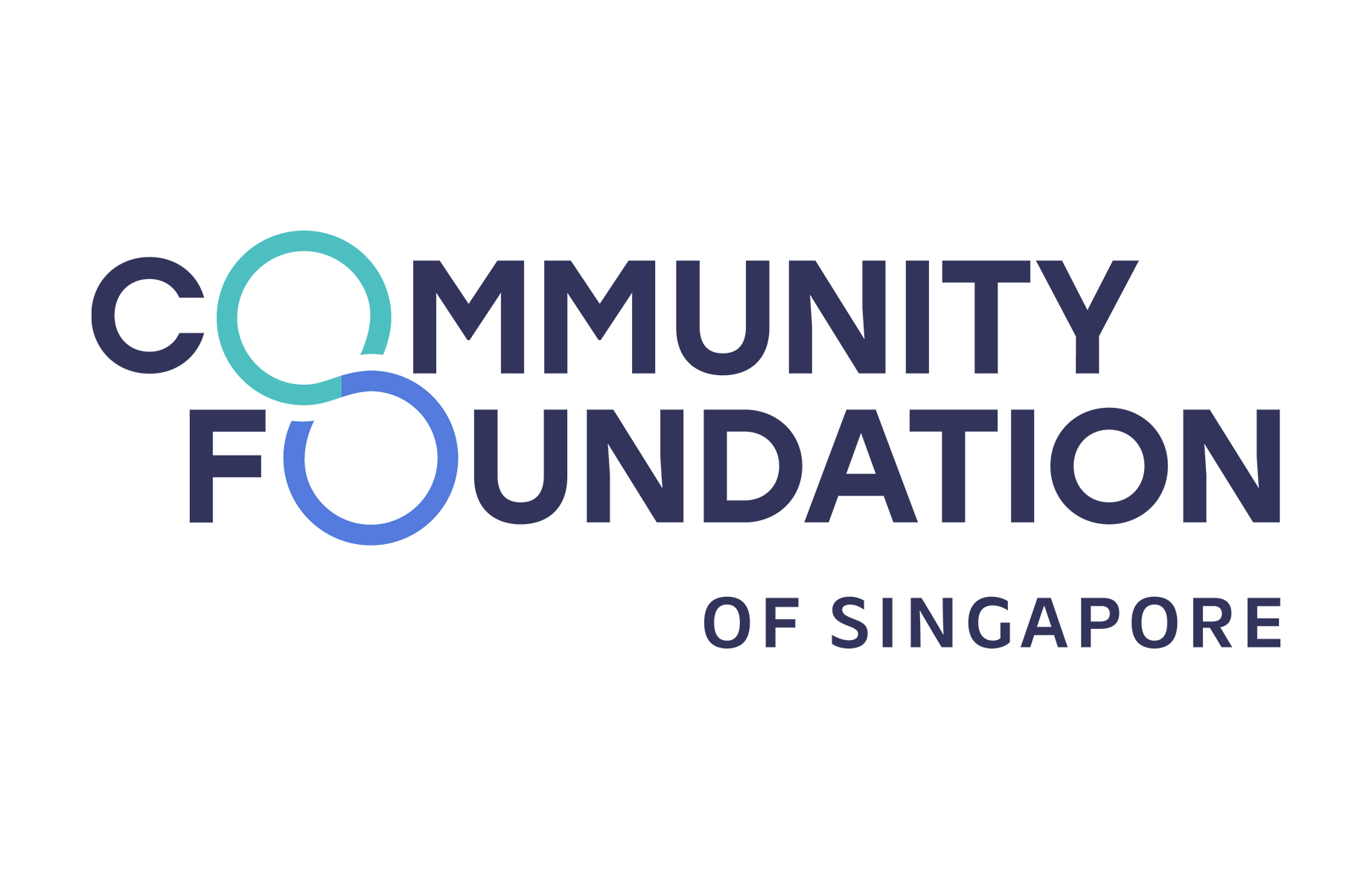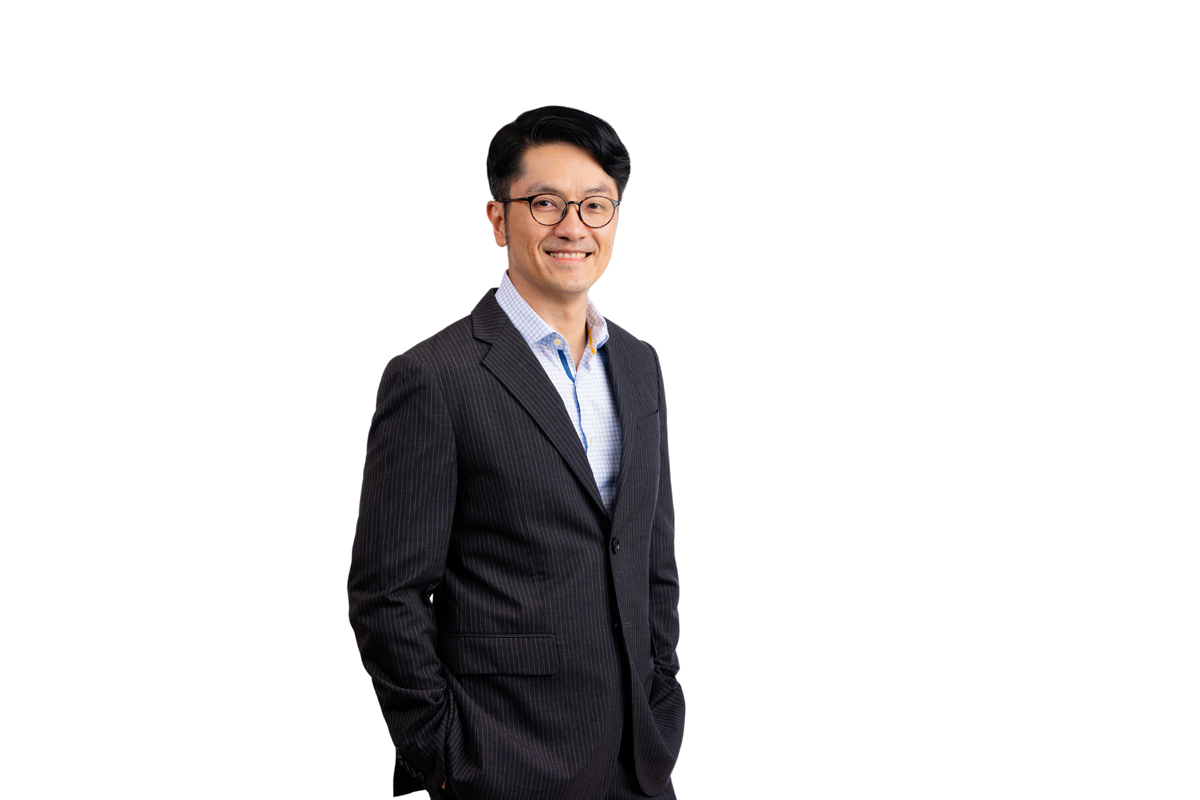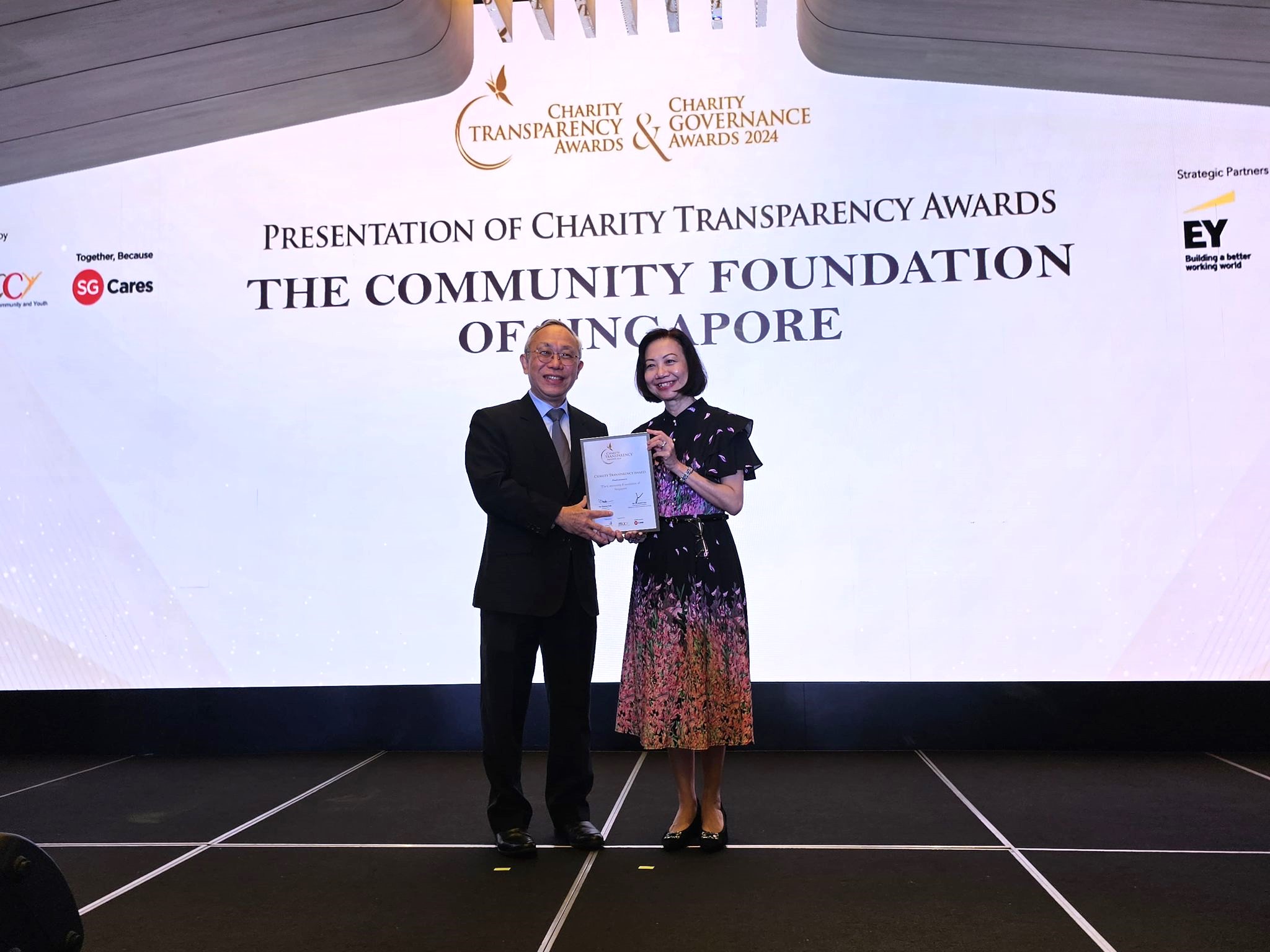CFS Receives National Award – COVID-19 Resilience Certificate


CFS has been awarded the COVID-19 Resilience Certificate, which recognises the contributions of organisations that played a vital role in addressing the challenges posed by COVID-19. Our CEO, Catherine Loh, received the award at the Ministry of Culture, Community and Youth (MCCY) Family National Day COVID-19 Investiture on October 10, 2023.
How We Pooled Resources for Singapore
As COVID-19 cases began to rise in February 2020, a member of the CFS board was deeply disturbed by reports of mistreatment towards healthcare workers. Anticipating the imminent health and economic challenges that lay ahead, CFS quickly recognised that action was needed.
“On February 11, 2020, we launched a Community Impact Fund which we named the “Sayang Sayang Fund”,” said Catherine Loh, CEO. “We felt this was the best and fastest way to respond to emerging needs as the crisis unfolded. It provided an easy way for donors to support those in need while CFS worked with sector partners to determine the type of support each community needed.”
The amount of support that poured in was heartening. We attained our initial target of $500,000 in just 10 days, and ultimately received $9.7 million from over 5,000 donors.
Thanks to our generous donors, we were able to collaborate with charities, ministries and social service agencies to deliver urgent assistance to those in need.
Making a Positive Impact on Affected Communities
In response to rapidly shifting circumstances, CFS acted through a wide array of initiatives and programmes, disbursing $9.7 million to aid 401,000 beneficiaries and 276 community organisations between 2020 to 2023. Here’s a glimpse into our efforts:
Healthcare Workers: Our initial action was to lift the spirits of nurses, doctors and ancillary healthcare workers by providing taxi vouchers and care packages sponsored by donations from the public and transport companies, ComfortDelGro, Gojek and Grab.
Elderly: When social distancing measures were mandated, the Sayang Sayang Fund (SSF) provided funds to several charity programmes to ensure the well-being of the elderly. These included educating them on infection control, reducing loneliness among elderly living alone, and ensuring low-income seniors had access to food despite disruptions in the supply chain.
Students: During school closure and home-based learning, students on financial assistance lost access to subsidised school meals. In partnership with the Ministry of Education, the SSF supplemented their allowances to ensure they continued to receive proper nutrition.
Migrant Workers: During the circuit breaker period, the SSF distributed mobile phone top-ups to migrant workers in lockdown who had insufficient balances in their accounts, so they could stay in contact with their families.
Rough Sleepers: Funds were disbursed to AMKFSC Community Services, Good News Community Services, Methodist Welfare Services, and New Hope Community Services to establish more shelters and assist in relocating rough sleepers to safe accommodations.
Learn more about the Sayang Sayang Fund.
CFS has been awarded the COVID-19 Resilience Certificate, which recognises the contributions of organisations that played a vital role in addressing the challenges posed by COVID-19. Our CEO, Catherine Loh, received the award at the Ministry of Culture, Community and Youth (MCCY) Family National Day COVID-19 Investiture on October 10, 2023.
How We Pooled Resources for Singapore
As COVID-19 cases began to rise in February 2020, a member of the CFS board was deeply disturbed by reports of mistreatment towards healthcare workers. Anticipating the imminent health and economic challenges that lay ahead, CFS quickly recognised that action was needed.
“On February 11, 2020, we launched a Community Impact Fund which we named the “Sayang Sayang Fund”,” said Catherine Loh, CEO. “We felt this was the best and fastest way to respond to emerging needs as the crisis unfolded. It provided an easy way for donors to support those in need while CFS worked with sector partners to determine the type of support each community needed.”
The amount of support that poured in was heartening. We attained our initial target of $500,000 in just 10 days, and ultimately received $9.7 million from over 5,000 donors.
Thanks to our generous donors, we were able to collaborate with charities, ministries and social service agencies to deliver urgent assistance to those in need.
Making a Positive Impact on Affected Communities
In response to rapidly shifting circumstances, CFS acted through a wide array of initiatives and programmes, disbursing $9.7 million to aid 401,000 beneficiaries and 276 community organisations between 2020 to 2023. Here’s a glimpse into our efforts:
Healthcare Workers: Our initial action was to lift the spirits of nurses, doctors and ancillary healthcare workers by providing taxi vouchers and care packages sponsored by donations from the public and transport companies, ComfortDelGro, Gojek and Grab.
Elderly: When social distancing measures were mandated, the Sayang Sayang Fund (SSF) provided funds to several charity programmes to ensure the well-being of the elderly. These included educating them on infection control, reducing loneliness among elderly living alone, and ensuring low-income seniors had access to food despite disruptions in the supply chain.
Students: During school closure and home-based learning, students on financial assistance lost access to subsidised school meals. In partnership with the Ministry of Education, the SSF supplemented their allowances to ensure they continued to receive proper nutrition.
Migrant Workers: During the circuit breaker period, the SSF distributed mobile phone top-ups to migrant workers in lockdown who had insufficient balances in their accounts, so they could stay in contact with their families.
Rough Sleepers: Funds were disbursed to AMKFSC Community Services, Good News Community Services, Methodist Welfare Services, and New Hope Community Services to establish more shelters and assist in relocating rough sleepers to safe accommodations.
Learn more about the Sayang Sayang Fund.
- Related Topics For You: ACCESSING QUALITY EDUCATION, AGEING WELL, AWARDS, CHARITY STORIES, CHILDREN, COMMUNITY IMPACT FUND, DIRECT AID, DONOR STORIES, EDUCATION, FAMILIES, HEALTH, INCLUSIVITY & INTEGRATION, MENTAL WELLBEING, NEWS, PARTNERSHIP STORIES, PROMOTING HEALTHCARE, SAYANG SAYANG FUND, SENIORS, YOUTH



